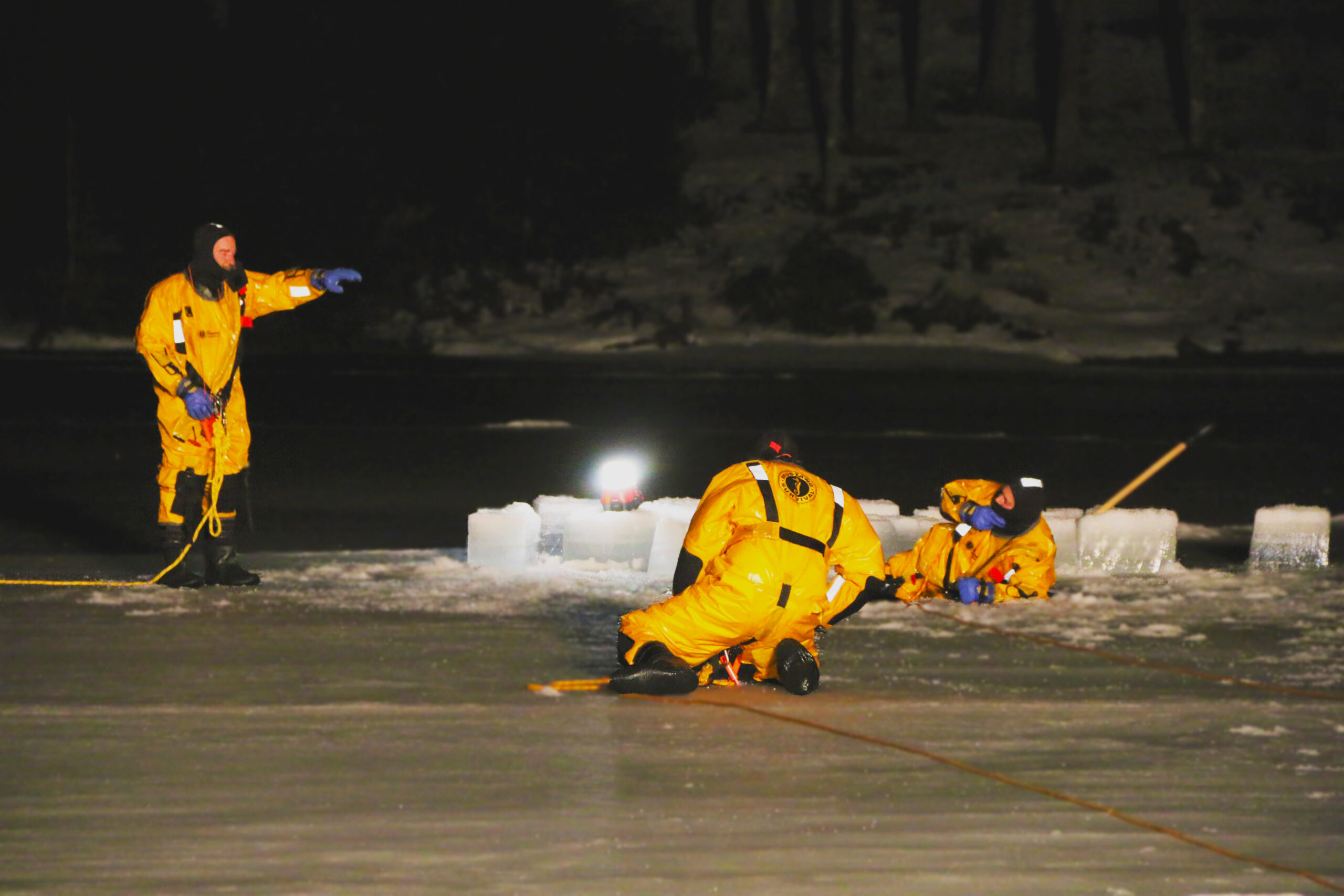By Danielle Ray
Princeton Fire Department personnel conducted and participated in annual ice rescue training held on March 9 at Steadman’s Pond on Hubbardston Road.
“We conduct one night of classroom training and practical skills, and then we go out on the ice and actually cut a hole and save a victim that is willing to go into the ice for an extended period of time wearing a dry suit,” said Princeton Fire Chief John Bennett.


CREDIT: Danielle Ray
Bennett said the training is vital, adding that they once saved a deer that fell through ice.
“Minutes count and we must be on scene and in our dry suits and on the ice as fast as possible,” he said. “We have saved animals in the past and recently there were ice rescues in Sterling and Holden last year. In most cases it’s either kids or people trying to save pets.”
Captain Brian Long led the training with the help of Captain Zachary Algarin.
“Other officers will either help or be part of the actual rescue crew,” Bennett said. “Everyone that wants to attempt an ice rescue is allowed and heavily supervised. It’s great training for skill development and it also separates who is comfortable conducting an ice rescue and what personnel are just simply uncomfortable on the ice. It’s great for comradery.”
The firefighters who participated in the training and various iterations of ice rescue scenarios using hand signals wore bright yellow dry suits that cost $2,000 apiece. Bennett estimated that the water temperature was right around freezing, 32 degrees Fahrenheit.
“They could stay in water this cold for up to four hours,” he said.
Bennett said the location, which they have trained at before, is ideal.
“It’s close to the road and easy to access, and also a popular spot for ice activities,” he said. “We also like an area that has enough depth so that the victim must truly be rescued.”
Bennett is certified Ice Rescue Technician, a title he was trained for years ago at an event in Sterling, Mass.
“There are a lot of ponds around the area, and it takes numerous personnel to conduct this exercise,” he said. “We have to be prepared for incidents in Princeton, but also in support of our mutual aid communities. We have had several ice rescues and cold-water rescues in Princeton in the past, and it is our aim to prevent future fatalities.”
Bennett said this is just one of many skills, assessments, and training exercises that the fire department personnel participate in on a weekly basis.
“Most residents don’t realize what we do to train and keep up our skills,” he said. “The Mustang suits we use for cold water rescue have been secured under grants, but they are over $2,000 per suit. We must maintain our gear for readiness, and we must train regularly because when we get a call, we never know what we will face.”
